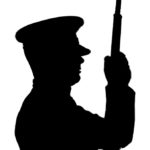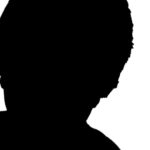This is a guest article from Terrell Carver. Terrell is professor of political theory at the University of Bristol, and a non-executive director of William Golding Limited. As an American high school student he first read Lord of the Flies in 1963.
Rutger Bregman and Jonathan Freedland, as well as their readers, might like to consider an alternative way of encountering Lord of the Flies.
In the Guardian Review (9 May 2020) the two set up the clichéd reading of Golding’s novel as a parable about human nature. Supposedly, in some timeless way, it endorses Hobbes’s premises of inherently quarrelsome violence.
And indeed, as they say, Rousseau responded to this challenge long ago. His alternative set of presumptions portrayed humankind as empathetic by nature. In his version of the parable, the human essence is both cooperative and egalitarian.
However, Rousseau argued from those presumptions to the conclusion that Hobbes was quite right about the sorry state that civilisation had created. It instills hierarchy, selfishness, ruthlessness and violence.
The reality that the boys inhabit in the novel is not some generically human and timeless realm of nature. Rather as Lord of the Flies unfolds, their reality revivifies the power-hierarchies instilled in their schools.
And those hierarchies are made visibly adult at the end. The gun-toting naval officer arrives with his warship in the background. This clearly mirrors the nuclear war that got the boys crash-landed on the island at the outset.
Were the six Tongan boys, in Bregman’s ‘real’ Lord of the Flies, any more the exemplars of human nature than the British boys Golding portrays?
As Bregman presents the tale – drawn many years later from recollections – those boys seem to have grown up together in a culture with habits and skills more suited to tropical islands.
It seems doubtful that telling Golding he’s wrong about human nature, and that Tongan boys are a Rousseau-esque truth about humanity, deals very helpfully with the issues about civilisation that Golding so effectively raised.
Consideration of what human nature is or isn’t will tell us nothing about how civilisation regularly maroons people, including children, in terrible circumstances. Indeed posing the human nature question displaces those realities altogether.
Lord of the Flies is quite a bit better than that.

